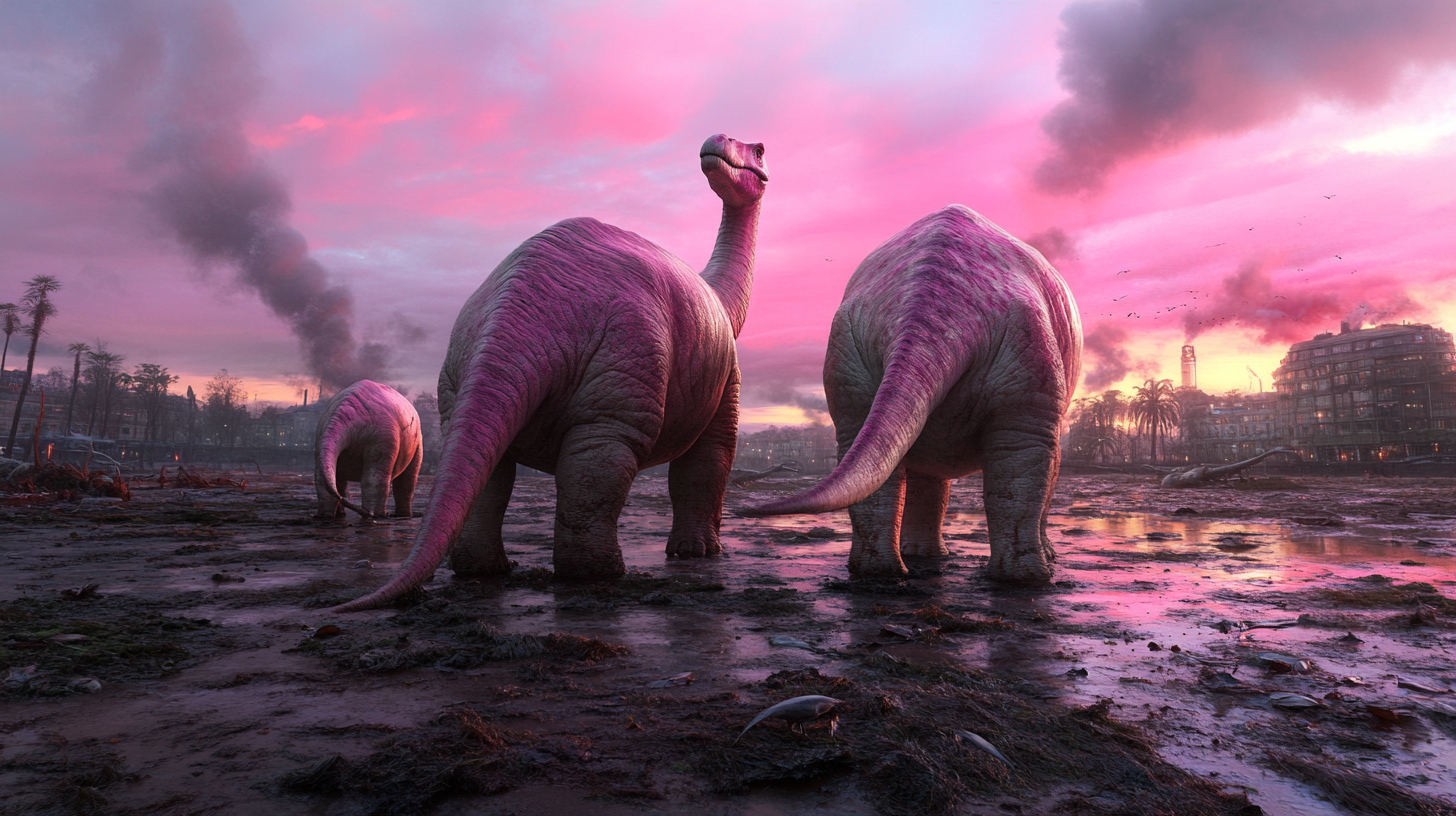The End of Specialists

This week, I posted on LinkedIn a response to a question about what skills you should learn related to AI to be successful in 2025.
I received so many messages from people either adding to the list (no one subtracted) or with questions on the best approach to get started.
Probably the most controversial statement I made was the value of being a generalist in AI rather than a specialist.
In the past, especially in technology, going deep into a subject often brought incredible value. For example, if you could code, then you could print dollars.
But AI brings a different slant to traditional thinking - and that is especially true for your personal knowledge base.
Today I will expand on that LinkedIn post with some concrete information on how I see you should grow your skill set for 2025 - especially if you are a CEO or business leader.
Let's learn together.
AI Earthquake
The workplace, as we know it, is about to undergo a seismic shift that will eclipse the impact of the Industrial Revolution.
That is not hyperbole.
According to McKenzie's groundbreaking 2023 research, AI will automate up to 50% of current work activities by 2030, reshaping the entire professional landscape as we know it.
Given the pace of recent announcements, this may occur long before 2030.
I've spent the last few years studying this transformation, and what I've discovered is both thrilling and sobering.
The winners in this new era won't be the specialists who've spent decades mastering a single skill—they'll be the AI generalists who can adapt and evolve.
Tomorrow's successful professionals will be those who can harness multiple AI capabilities.
And do it simultaneously.
In some ways, this isn't different from the skills that successful CEOs possess already today.
We think of it as juggling the multitude of people, processes, products, and problems that make up the typical American company.
But now, there is the added complication of knowing that someone out there will gain an incredible efficiency advantage by implementing AI and automation.
The problem for a CEO or business leader today is that you do not know which ball in the air will be the most important and therefore how to point your focus.
Sam Altman, CEO of OpenAI, recently shared a fascinating insight: tech CEOs are now betting on when we'll see the first one-person billion-dollar company. This isn't science fiction—it's the near future of work.
And this has a profound impact on every business category.
This shift represents the most significant opportunity for professional reinvention in our lifetime. The question isn't if this change will come—it's if you will be ready when it does.
THE EXTINCTION EVENT OF SPECIALIZATION

The age of the specialist is drawing to a close.
Once considered irreplaceable, corporate lawyers, radiologists, and software developers will probably find their specialized skills matched or exceeded by AI systems.
Please don't start the hate mail. (I could have put hundreds of specialists in this group, including dermatologists.)
I really don't think specialists have to worry about becoming irrelevant if they quickly learn to adapt and learn AI tools and systems. More about that later.
But almost every field, regardless of the uniqueness of the specialty, will undergo massive change. And that will happen soon. Likely in 2025.
Just this past week, there were reports of Da Vinci surgical robots learning from videos of actual surgery.
So, for specialists that have spent a lifetime of age and financial capital in their education, there is a learning emergency for rapid assimilation of AI skill sets.
The recommendation for the business leader will be different.
It is incredibly risky to become a technology and AI "expert" in a single field of knowledge today.
Let's take coding.
AI has all but replaced coding, as we have historically known it. Now before all the IT folks call me out on X and Reddit with "It is not as good" or "We can code with better architecture," I think it is important to note that whatever is "not that good today" will be better tomorrow.
Coding manually is a dead field. AI agents are becoming the coders of our new generation.
And it can happen with a single application developed by some great coders.
Ironic right?
Just to drop a few names - Cursor, Bolt. New - have revolutionized how software coding works. Bolt can actually create a full stack application that you can deploy to your clients with just prompting and answering a few questions.
Does it work?
Hell yes, it does.
I'm not a coder, but even a slightly greying dermatologist built a software application in about 20 minutes for under $15.
Is it a super computer? No. But neither was the guidance system on Apollo 11 and we saw how that turned out.
Focusing solely on coding or one AI area might mean missing crucial aspects and quickly lead to outdated skills.
Take-home message: Be prepared to diversify your knowledge.
THE RISE OF THE AI GENERALIST
Modern AI generalists are the new titans of the professional world — adaptable, and thriving in changing environments. They can achieve 80% proficiency in multiple domains in weeks rather than years.
They thrive in learning. And they fear missing out.
These professionals aren't just working smarter; they're redefining what's possible for individual achievement.
For CEOs and business leaders, this means that for once, knowing a subject a mile wide and an inch deep could be an incredible advantage if that subject is AI.
Knowing a bit about a lot of disciplines within AI allows you to picture how these tools can interact with multiple areas of your business - not just in a super specialized department.
You can move your strategic thinking about technology to be more horizontal and think across your organization rather than at the team or product level.
Although you don't have to develop a Bill Gates level of understanding of key areas - albeit the more you know, the more likely you will see a strategic advantage - becoming even minimally adept at multiple disciplines will require work to learn.

THE NINE SKILLSETS I RECOMMEND TODAY
This isn't as daunting as it looks. Most of the items on this list actually connect and work together, and you will learn several at once.
Focus on these nine skill sets:
1. AI-Powered Software Architecture
2. Autonomous Agent Engineering
3. Prompt Engineering
4. Content Creation
5. Video Production & Editing
6. AI Analytics
7. Systems Integration
8. Safety & Compliance
9. Continuous Learning
Let me discuss in a bit of detail so you can develop a framework of understanding.
Ai-Powered Software Architecture: learn how AI can develop software applications. Many people on YouTube have cloned everything from Spotify lookalikes to highly specific job-specific software stacks; see how you can easily build novel software systems for your own organization.
Autonomous Agent Engineering: This is just a lot of words for automation. Consider how AI systems can connect different parts of your organization. Don't give up if a solution isn't available yet; keep humans in the loop, but explore how automation could improve your business processes.
Start simple by connecting and automating reporting for your sales team. You will be shocked by how easily you can accomplish this and the immediate insight you will gain from real-time results.
Prompt Engineering: Start practicing writing prompts for AI systems with ChatGPT. The OpenAI playground is an amazing resource to teach you how to create prompts. There are a lot of more advanced tools out there that can help in writing prompts, and Promptmetheus is one of my favorites. This is also a great learning tool for the novice prompt engineer.
Probably the best way to learn: get the $20 plan from ChatGPT and start asking questions. At our agency, we even have a client playground where we can collaborate to improve the prompting. This open source approach allows you to see use cases from others and adapt them to your own situation.
Content Creation: This is a big topic, but incorporate AI content creation into your workflow. Use it to create meeting summaries, write emails, create social ads and more. But don't stop there. Experiment with the image models to create logos, photos, and art for your business. Some of the best tools out there are MidJourney and Stable Diffusion. And inside baseball? AI created every image in this newsletter since its inception.
Video: I'm putting this as a separate item because of the rapid pace of change related to AI video. Start exploring AI video editing - which allows you to edit with just a word processor interface - and drift a bit into shorts and memes. Incorporate this into your own organic video program (which is also essential for 2025.)
AI Analytics: This is an area that many of the businesses that I work with just don't consider as a mainstream application - but they should. In the past, our business limitations stemmed from the amount of data our applications could process, which limited our measurements. But since the proof of the scaling hypothesis - more data makes AI systems smarter - there can never be too much data. So incorporate systems to measure more and connect these to AI analysts to provide more real-time insights to your business. I think this ability to navigate strategic direction faster and better with AI advice is low hanging fruit for most companies.
Continuous Learning and Safety: I've written about this before, but the pace of change occurring in AI requires a very robust and programmatic approach to learning and keeping up. First, start with a safety plan that allows employees to use AI tools within their workplace. This may seem surprising to some, but I meet with companies every week where employees don't have access to even ChatGPT because of "AI Safety Policies."
{Sleeper alert for leaders: your employees are using these tools anyway - just their personal accounts.}
Next, create a personal approach to keeping up. Simple things include ditching some of Netflix for YouTube, subscribe to several AI newsletters, and experiment with tools yourself to become personally familiar with the platforms.
CONCLUSION
Those who can harness the skills to become true AI generalists will inherit the future. The tools are available; the opportunity is obvious, and the time to act is now.
Your success in 2025 and beyond depends on your willingness to evolve from a specialist into an AI-powered generalist.

Member discussion